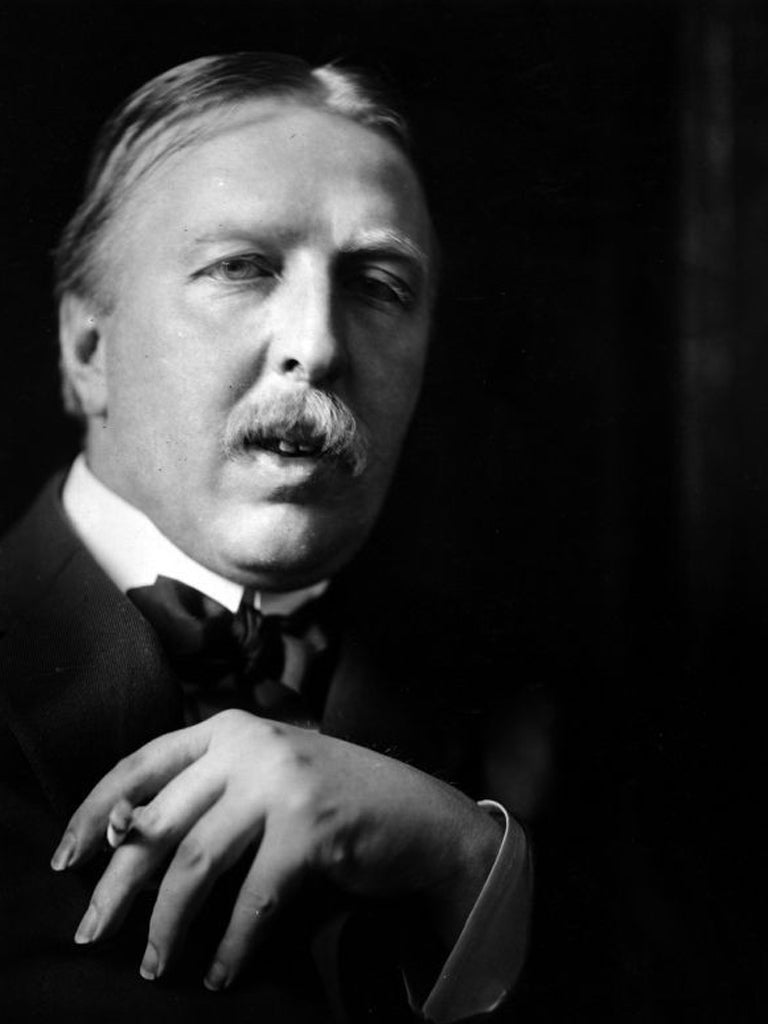Book of a lifetime: The Good Soldier, By Ford Madox Ford

Your support helps us to tell the story
From reproductive rights to climate change to Big Tech, The Independent is on the ground when the story is developing. Whether it's investigating the financials of Elon Musk's pro-Trump PAC or producing our latest documentary, 'The A Word', which shines a light on the American women fighting for reproductive rights, we know how important it is to parse out the facts from the messaging.
At such a critical moment in US history, we need reporters on the ground. Your donation allows us to keep sending journalists to speak to both sides of the story.
The Independent is trusted by Americans across the entire political spectrum. And unlike many other quality news outlets, we choose not to lock Americans out of our reporting and analysis with paywalls. We believe quality journalism should be available to everyone, paid for by those who can afford it.
Your support makes all the difference.I came across Ford Madox Ford's 'The Good Soldier: a Tale of Passion' when I was in my teens, in a box of my late grandmother's books.
It was a paperback edition of Ford's novel of 1915, published in the US in the 1950s; perhaps my grandmother, who was American, had bought it on a trip home after the war. Its stiff cover bears an ink drawing of a man and woman in a smudgy embrace, each of their faces obscured by the other; another man is turned towards them, standing stock still, his face a pale whorl.
When I read the book, I was gripped but baffled by it. Afterwards, I remembered only its mysterious, confused atmosphere, passionate, messed-up, blurred. When I read the novel again several years later, I understood a little better what had compelled me, not least that both my bewilderment and my fascination echoed the narrator's own.
Our narrator, an American called John Dowell, relates how he and his wife, Florence, befriended an English couple during their annual visits to a German spa. As Dowell much later learnt, Florence embarked on a long affair with the Englishman, a former soldier called Edward Ashburnham. The consequences were terrible.
"This is the saddest story I have ever heard," Dowell begins, as if the story and the sadness belong to someone else. "You ask how it feels to be a deceived husband," he says. "Just heavens, I do not know. It feels like nothing." Yet Dowell's narrative shudders with his own feelings. It is driven by his will to understand, and twisted by his dread of doing so. He rambles and digresses, circles and dodges, only for the skittering surfaces to be suddenly stabbed through with an over-vivid image, an odd joke, a stark assertion. "I know nothing – nothing in the world – of the hearts of men," Dowell says, his desperation somehow still staved off by rhetoric. "I only know that I am alone – horribly alone."
Ford originally named his novel "The Saddest Story" but his publisher, arguing that such gloom would not play well with the public in 1915, asked for another title. Archly, sarcastically even, Ford proposed 'The Good Soldier'. He later regretted the change of title, and he was right to do so. The heavy-handed irony of the new name is a travesty of the delicate and devastating ironies of the story within.
'Mrs Robinson's Disgrace' by Kate Summerscale is published by Bloomsbury.
Summerscale will be appearing at this weekend's Queen's Park Book Festival in London
Join our commenting forum
Join thought-provoking conversations, follow other Independent readers and see their replies
Comments